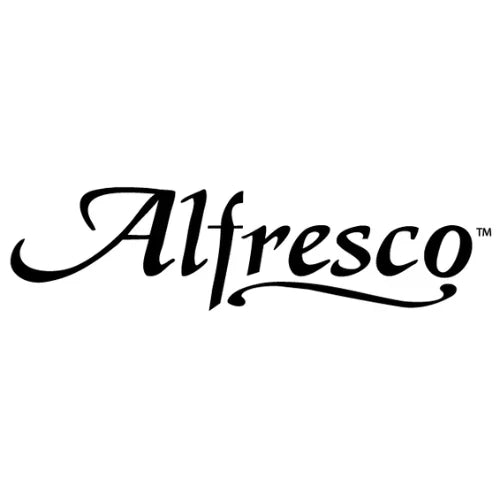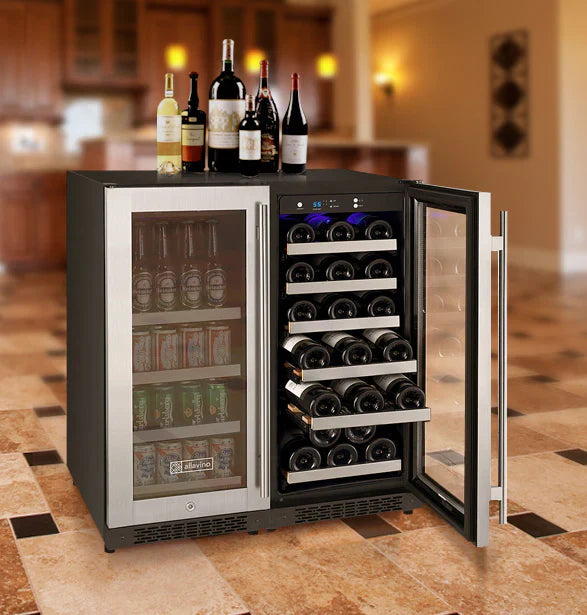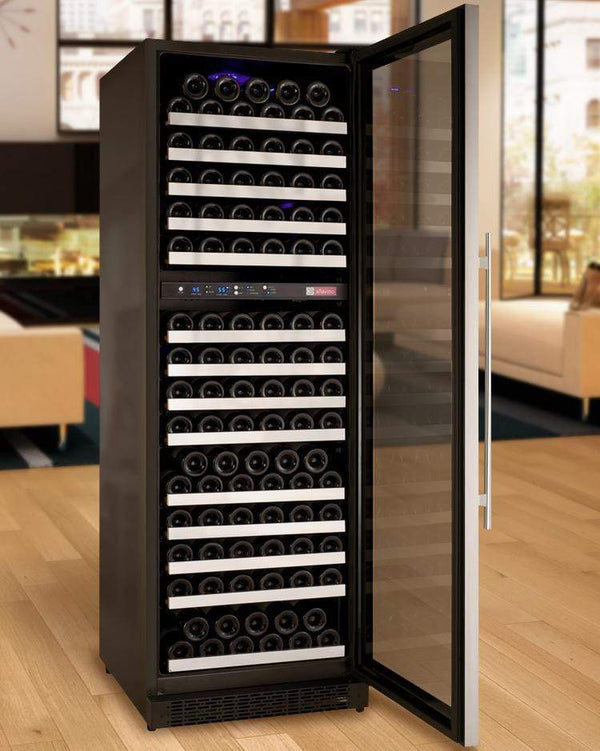Designing a Wine Cellar?
Let’s get it right.
Our specialists review your room layout, insulation, and heat load to recommend the correct cooling system for stable temperature and reliable climate control.
Best Advice About Storing Wine: Essential Home Tips
Essential Wine Storage Tips for Preserving Quality at Home
By Jim Hopper, Wine Cooling Expert
Are you properly keeping your wine? If you are a frequent wine drinker, storage might not be an issue. However, if your wine rack contains more than three or four bottles, these storage tips will help extend the life of your wine.
First, it is important to understand that the vast majority of wine sold should not be cellared or aged. For example, storing a \$20 bottle of wine for many years would not improve its flavor or value. This wine is almost certainly going to ruin.
On the other side, fine wine may be stored for many years and improves with maturity. These wines are pricey, with some costing upwards of \$200,000. If you have this kind of stock, you may need a wine cellar cooling unit, and wine connoisseurs can provide detailed aging guidelines for each wine.
These measures and guides will demonstrate how to better store wine at home. They are not intended to teach you how to age wine; rather, they are intended to teach you how to conserve daily wine so that it does not ruin prematurely
If you’re planning to create a custom storage solution or want to learn how to create the perfect environment for long-term wine storage, explore our Wine Cellar Design support page for expert advice and personalized assistance, or check out our comprehensive guide on how to build and design a wine cellar.
Assess the wine that you want to store.
Consider where to store wine before considering how to store wine. Consider the following:
- Which kind of wine do you need storage for? Is it a good wine?
- How much wine do you own and how long do you want to keep it?
- Are you going to store it in your house or in a wine cellar?
- How can your wine collection integrate with your daily life?
If you choose to preserve a bottle of wine rather than promptly drink it, you must adhere to the recommended temperature, light, and humidity guidelines.
Thinking about creating a dedicated space for your collection? Learn more about the best place to put a wine cellar and why proper wine storage matters.
Avoid intense sunshine and store your items in a safe, cool room.
Sunlight may allow sulfur-containing amino acids to oxidize, altering the wine's taste. Keep the wines free from overt sunshine and fluorescent lighting. If your wine has an unusual odor, it is possible that ultraviolet rays have caused it to become "lightstruck."
White wine aged in transparent bottles is particularly vulnerable to intense sunlight exposure due to the glass providing less cover than darker bottles. Bear in mind that incandescent illumination will even have an impact on the wine's integrity.
The primary takeaway should be to store your wine in a dark, dry location to maintain its exceptional flavor. If you are unable to hold a container completely out of direct sunlight, place it inside a box or gently cover it in fabric. If you want to age your wine in a fridge, make sure to choose one with sturdy or UV-resistant frames.
Maintain a constant temperature and humidity level while storing wine.

If there is one critical point to keep in mind, it is this: store your wine at the proper temperature and humidity level! The optimal temperature range for wine storage is between 45 and 65 degrees. Any temperature greater than 70 degrees Fahrenheit will cause the wine to spoil.
Aim for a temperature of 55 degrees, but any temperature between 45 and 65 degrees would suffice. im to keep humidity between 50% and 80%. This range prevents corks from drying out while also minimizing the risk of mold. Use a hygrometer to monitor conditions and adjust with a humidifier or dehumidifier as needed.
Although it is critical to obtain the optimal atmosphere, it is also critical to maintaining the same level of air quality. Stop temperature fluctuations induced by environmental factors such as conditions or heating and cooling devices. The more stable the surrounding climate, the longer the wine can last.
Not sure how to determine the humidity level? Purchase a hygrometer for about \$20 at the nearest hardware shop.
For help designing a space that achieves the perfect conditions for your collection, visit our Wine Cellar Design page to get started with expert support.
Distinguish Storage Temperature from Serving Temperature
While the ideal storage temperature for wine is around 55°F, serving temperatures can differ depending on the type of wine. For best flavor, serve white wines and rosés between 44–55°F, sparkling wines at 40–46°F, lighter reds at 55–59°F, and bold reds at 60–68°F. Storing wine at the right temperature preserves its quality, but allowing a bottle to come to the proper serving temperature before pouring will ensure you enjoy it at its best.
Consistency Matters More Than Perfection
While hitting the exact “ideal” temperature or humidity is helpful, maintaining a steady, stable environment is even more important. Avoid frequent or dramatic changes in your storage area—consistency helps your wine age gracefully and prevents premature spoilage.
Want more details on getting the conditions just right? Check out our in-depth article on the ideal temperature for storing wine at home.
Avoid storing corked wine bottles upright.
It is recommended that corked wine be stored on its side.
Although it can seem to be more practical to stack a few bottles over your cupboard to conserve room, it is critical to store wine on its side if it has a cork. Proper cork storage may allow the cork to dry out, resulting in oxygen exposure and spoilage of the wine. Maintain constant moisture in the cork.
When Does Bottle Orientation Matter?

Storing wine bottles horizontally is important when your wine is sealed with a natural cork—this keeps the cork moist and prevents air from seeping in. However, if your bottles have screw caps, synthetic corks, or glass closures, storing them on their sides isn’t necessary. For these, upright storage is fine, especially if you plan to drink them soon.
Keep in mind that the majority of wine has an end date.
The majority of wines can be stored for several years.
As previously said, not every wine is intended to be aged. The bulk of wines have a shelf life of a little longer than a year or two. Although the bottle does not have an expiration date, it is safest to drink the majority of wine within a very limited amount of time.
If you want a wine that will improve with age and last ten years or more, seek out select varieties with a precise combination of tannins and sugars from an experienced wine vendor.
The majority of distilled red wine has a maximum shelf life of three years.
The majority of distilled white wine has a shelf life of one or two years.
Avoid heavy odors that can impart a tainted flavor to the wine.
Since wine breathes through the cork, be cautious about odors.
Though it can appear easy, it is recommended that wine not be stored in the kitchen. Since wine breathes through the porous cork, it should be stored away from heavy odors such as food or garbage. Corks can absorb odors and taint the wine.
Maintain a safe distance from corked wine and foods such as garlic in the pantyhose and spray cans in the cellar. To get the maximum performance, locate the wine rack in a dim corner or closet away from cleaning supplies and other possible pollutants.
Practical Tips for Controlling Odors and Vibration

To further protect your wine from unwanted influences, consider using odor-absorbing materials like charcoal filters near your storage area. If you’re storing wine in a space prone to vibration—such as near appliances or in areas with frequent movement—add padding under racks or choose a location away from these disturbances. Stable, odor-free environments help maintain your wine’s intended character.
Avoid storing wine in the refrigerator for an extended period.
Wine can not be held in the refrigerator for longer than a couple of days.
When storing wine in the refrigerator is acceptable in the short term, the vibrations can cause harm over time. Not only can store the wine in the refrigerator for more than a day subject it to odors, but the noises from the compressor will also affect the wine.
Vibrations from the refrigerator will modify the chemical composition of the wine and disrupt the sediment at the bottom of certain wines. To avoid these pitfalls, keep wines away from big, noisy household appliances such as the washer, dryer, or boiler, as well as rooms with high foot traffic.
White wine can be refrigerated for up to three days after it has been opened. This time will be extended a few days if you have a wine pump and can drain most of the air from the container and reseal it. Red wine can keep for a few days at room temperature when not refrigerated.
How to Store Opened Wine Bottles

Once you’ve opened a bottle, oxygen starts to affect the wine’s freshness. To slow down this process:
- Re-cork the bottle tightly or use a wine stopper.
- Consider a vacuum pump to remove excess air.
- Store opened reds at room temperature for up to two days, and opened whites or rosés in the refrigerator for up to three days.
- For sparkling wines, use a specialized stopper to preserve bubbles.
These steps can help you enjoy your wine over several days without noticeable loss of quality.
After you've put the wine in storage, keep it there once you're ready to drink it.
Much like refrigerator vibrations will wreak havoc on wine, so can excessive moving. Picking up bottles of wine and reverting them to their hand has a detrimental effect on the wine.
Construct a storage device that enables you to retrieve a single bottle of wine without disturbing the remaining bottles. As a result, it is safest not to stack bottles of wine on top of one another or to store them one after the other on a rack.
Wine Storage Options for Every Collector
Not everyone has the space or budget for a dedicated wine cellar. Fortunately, there are several options to suit different needs:
- Wine Fridges: These offer controlled temperature and humidity, ideal for small to medium collections.
- Self-Storage Units: Some storage facilities offer climate-controlled units designed for wine.
- Cool, Dark Closets: For short-term storage, a closet or cabinet away from heat and light can suffice.
Choose the solution that best fits your collection size, budget, and available space.
Related Resources
If you’re ready to take your wine storage to the next level, explore these helpful guides:
- DIY Wine Cellar Guide: Step-by-Step Instructions
- Basement Wine Cellar Guide
- Best Wine Cellar Insulation Tips
- Wine Cellar Ventilation Essentials
- Custom Wine Cellar Design Ideas
- Wine Cellar Design Inspiration
Final Thoughts

We hope that this tutorial has shown you how to properly store wine at home. Consider self-storage if you lack the capacity or money necessary to safeguard your wine collection. There is plenty of wine storage advice that focuses on monitor temperature, illumination, and humidity while maintaining a high degree of security and dependability.
If you’re ready to take your wine storage to the next level, get expert support for planning and building your ideal wine cellar with our Wine Cellar Design service.
📚 Frequently Asked Questions (FAQs)
What are the best practices for wine storage?
What is important when storing wine?
How do you store wine for a long time?
What are the best conditions to store wine?

Designing or Upgrading a Wine Cellar?
We got you! Here at Wine Coolers Empire, we will guide you in building your dream wine cellar.











